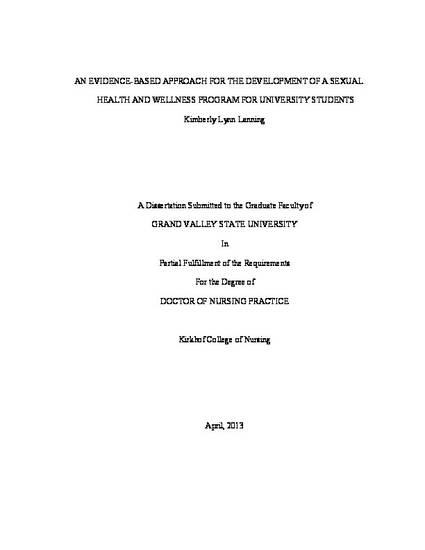
The transition from adolescence to adulthood involves important developmental challenges. Events during this key developmental phase can profoundly shape and influence academic and occupational achievement as well as affect health outcomes. College students are particularly vulnerable to a number of health threats during this time of transition from a high school student within the protective barriers of the home environment to an independent college freshman. These health threats include depression, anxiety, intimate partner coercion, violence, and sexually transmitted infections. Sexual health education can help provide adolescents with decision making information and skills. The dissertation project is focused on the utilization of Making A Difference! curriculum. It is based on cognitive positive attitudes and beliefs regarding abstinence, abstinence negotiation skills, and confidence in their ability to abstain from sex or make the decision to participate in sexual activity when ready (Jemmott, Jemmott & Fong, 2010). The project was facilitated with the GVSU Women's Center, adapting the curriculum for a college based audience. The project included a pre and posttest evaluating the knowledge, attitudes, and behaviors of the 61 participants. Although there was not a significant difference in overall knowledge, attitudes and behaviors of the participants, selected responses of primary interest were analyzed separately to look for any change in response between the pretest and posttests. Six participants changed their answers to two questions addressing attitudes from the pretest to the posttest. Participants with married biological parents demonstrated a significantly higher mean score than those participants with non-married parents. There was a significant positive linear relationship between each student's attitude and behavior scores. Evaluating feedback expressed participants' desire for more learning opportunities involving curriculum such as this project. The recommendation is to continue with sexual health and wellness programming among college age participants.
Available at: http://works.bepress.com/kimberly-lanning/1/
